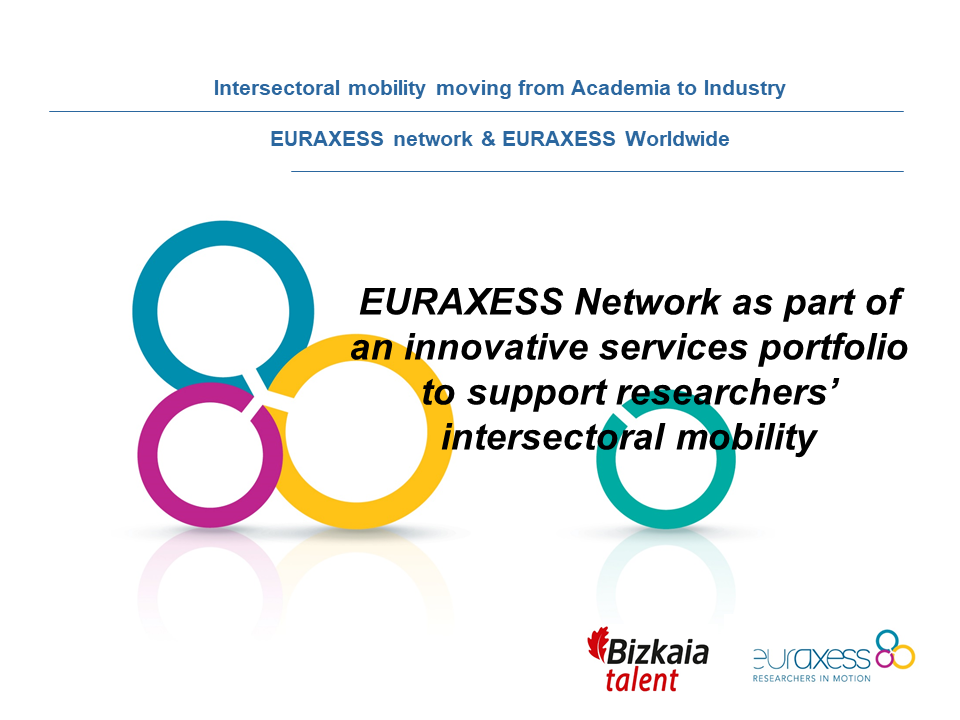The EURAXESS Network chooses Bizkaia Talent as its expert intersectoral mobility trainer

- Carmen Méndez de Castro gives a training session on the network’s resources for research staff and the services offered by the Basque association
In an increasingly interconnected world, EURAXESS Worldwide offers the possibility of global interaction, helping researchers who work in non-European countries and are seeking to connect to Europe. This network enables the researchers to strengthen European research and global scientific cooperation.
The EURAXESS TOP IV project aims to extend the creation and functioning of dual career development services, and one of its initiatives is to improve communication between the Euraxess Network and EURAXESS Worldwide. The members of the network therefore recently chose three expert European partners in the following areas, to aid research staff throughout the world wishing to stay connected with Europe:
• Intersectoral Mobility: Moving from Academia to Industry (Carmen Mendez, Bizkaia Talent)
• Entry Conditions for Non-EU Nationals (Svetlana Dimitrova, Sofia University)
• EURAXESS Career Development Tools (Dean Hogan, Career Development & Training Professional)
In a session entitled “EURAXESS Network as part of an innovative services portfolio to support researchers’ intersectoral mobility”, Carmen Méndez de Castro, head of the Relocation & Be Basque Dual Career Centre service, explained the network’s role and its commitment to intersectoral mobility: the network’s online resources enabling researchers to develop their careers beyond academia through either job offers in industry, careers beyond academia, personalised assistance or the services offered by the 600 members of the 42 national networks making up EURAXESS. She also mentioned the recently created manual of scientific entrepreneurship and the Rebeca mentoring programme.
Finally, Ms. Méndez de Castro spoke about Bizkaia Talent as one of the network’s success stories, the services the Basque association offers research staff and two real cases: 1) A European researcher developing their career in Japan who decided to return to Europe and work in industry, finally opting to start up a business and creating a technology-based company. 2) A group of entrepreneurs and researchers from Chile who came to live in Bizkaia and set up their own laboratory.







